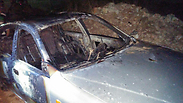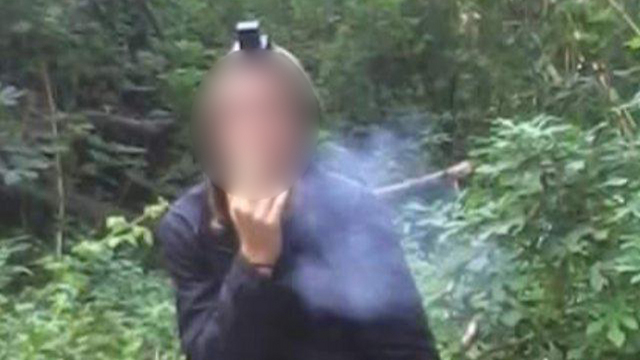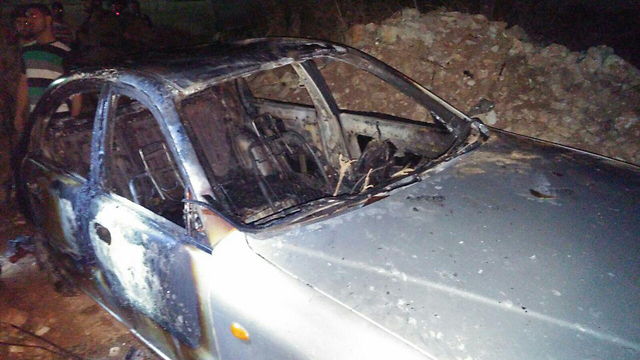
Six youths from the Binyamin region of the West Bank have admitted to involvement in security offenses against Palestinians, the Shin Bet cleared for publication Wednesday morning.
They are suspected of torching vehicles, throwing Molotov cocktails and gas grenades at inhabited homes and assault. According to the Shin Bet, shortly after their arrest, the suspects admitted the acts attributed to them, and in recent days they have even reenacted several of the incidents.
The six suspects - Pinchas Sandorfi, 22, Itamar Ben Aharon, 20, Michael Kaplan, 20, two boys aged 16 and 17, and a soldier - all of whom live in a settlement in Binyamin. Three of them are brothers, and the actions attributed to them are believed to have taken place in the Gush Talmonim area near Ramallah. The detainees are also being investigated on suspicion of similar offenses carried out in 2008 and 2009.
The Shin Bet and the nationalistic crimes department of the West Bank police investigation revealed that the members of the cell, who were active for a long time, are suspected of torching a Palestinian vehicle in the Palestinian village of Beit Illu a few hours after the murder of Na’ama and Eitam Heinkin last October.
In addition the cell is suspected of attacking a Palestinian in July 2015, and of torching another Palestinian vehicle in 2014. Moreover, five of them are suspected of throwing a Molotov cocktail at a house in the Palestinian village of Mazra’a al-Qibliya last November 20 and of throwing a gas grenade y at a house in the village of Beit Illu last December.
The father of the three detained brothers detainees is the rabbi of the settlement. It should be noted that ‘ticking bomb’ investigative techniques, which involve physical pressure, used on those involved in the Dawabshe murder incident, were not used in the suspects.
The nationalistic crimes department and the Shin Bet used various types of technologies during the investigation. Officials involved in the investigation related that the case involved long-term intelligence work, which resulted in the discovery of the cell which operated against Palestinians under the radar for a long time.
In addition the cell is suspected of attacking a Palestinian in July 2015, and of torching another Palestinian vehicle in 2014. Moreover, five of them are suspected of throwing a Molotov cocktail at a house in the Palestinian village of Mazra’a al-Qibliya last November 20 and of throwing a gas grenade y at a house in the village of Beit Illu last December.
Aharon Roza of the Honenu organization, one of the lawyers representing the suspects, said, "In contrast with all sorts of rumors and half-publications, most of the offenses investigated in this matter involve no harm to human life, and most are no more than a scuffle between people. Regardless of the type of offenses being investigated, this method of preventing meetings with an attorney in every investigation whose headline is 'security investigation' is not proper or right."
Hai Haber of the Honenu organization, an attorney representing the suspect who is currently an IDF soldier, said, "Today is another dark day for the state of Israel, which purports ot tbe a democratic state. Unfortunately, the investigative authorities have apparently not come to the appropriate conclusions from the torture and human rights violations of the Duma affair (in which the detainees, suspected of the arson attack that killed several members of the Dawabsheh family in Duma, were supposedly tortured by the Shin Bet. -ed), and here things go again, and a troubling reality in which prohibiting a suspect from meeting an attorney becomes the rule, and granting a person's basic legal right to speak to an attorney before an interrogation is the exception to that rule."
Adi Keidar, also an attorney from the Honenu organization, who is representing some of the suspects, said, "In the age of Zadorov and Duma, I can only express my astonishment at the continuation of the corrupt method that focuses only on gaining confession by improper means and with no legal advisement. The justice system is becoming one that prevents (people from getting) legal advisement and abandons suspects, and this should worry every citizen of the state."


















